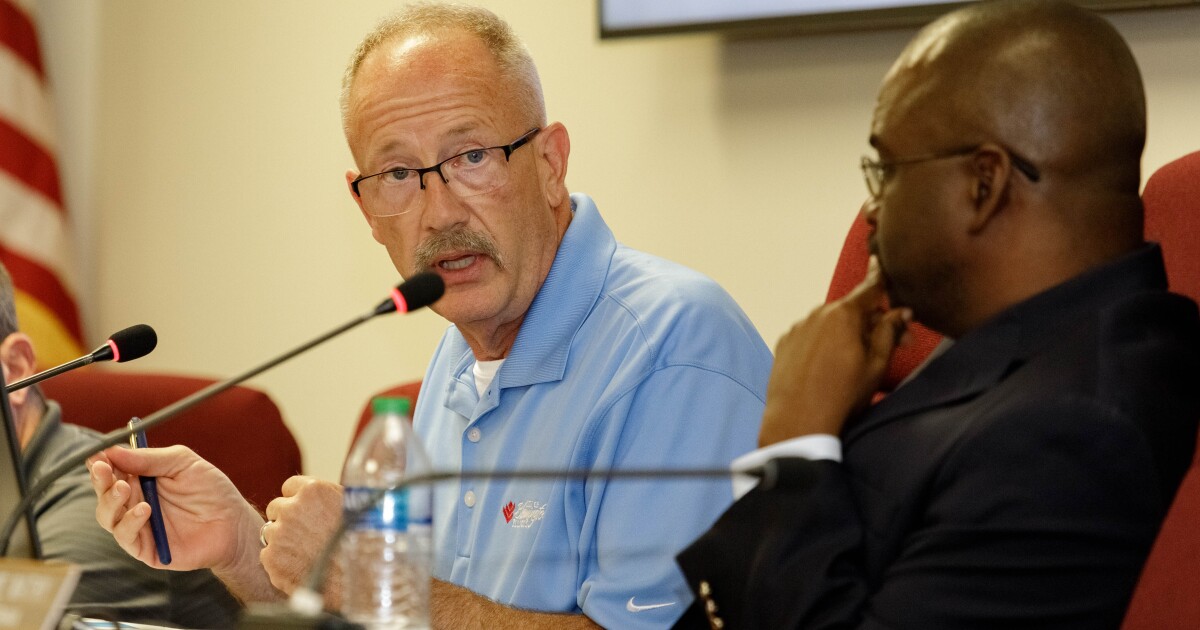
Bloomington’s city manager expressed skepticism that the city can legally send direct financial assistance to June flood victims—or that a majority of city council members would support it.
Last week the Bloomington City Council approved by a narrow 5-4 vote member Mollie Ward’s proposal to study a direct aid program and potential funding sources. She said some of those people do not make enough money to qualify for federal disaster loans and stand to lose their homes.
“There are people who are hurting,” said Ward, calling it a “moral obligation” to help. “We have people who have holes in their foundations that are big enough to drive a car through.”
Council members Donna Boelen, Sheila Montney, Nick Becker, and Tom Crumpler voted against studying the issue.
“I look at the Illinois constitution and it only seems to allow use of public funds for public purposes. I’m really concerned about using public tax dollars in a relief fund,” said Crumpler.
Speaking Tuesday on WGLT’s Sound Ideas, City Manager Tim Gleason echoed that concern.
“The idea of directly funding victims … I’m not sure the city can do that,” he said. He said assistance from other places, such as City of Bloomington Township, would be more appropriate.
City staff is still researching which options to present to council members. Gleason said it was a “tough” issue around which to find a council majority.
“(The 5-to-4 vote) means there’s interest in learning more—by the narrowest of margins,” Gleason said. “That does not mean that if we were able to do this, if there was an agenda item in the future saying we’d write direct aid relief checks to the residents, that doesn’t mean just because this council initiative (from Ward) passed that there’d be majority support for something like that.”
More than 2,000 homes and businesses were damaged in McLean County during the late June storms, though officials said the total number of damaged properties is likely much higher. Some Bloomington residents have criticized the city’s response to the storms, arguing the city’s vast network of combined sewers contributed to the flooding (especially the sewage backup). City officials have pushed back on that. Gleason recently told WJBC Radio that “there is nothing wrong with our sewer system—at all.”
Gleason sounded more enthusiastic about expanding the city’s Overhead Sewer Program, which homeowners can use to pay part of the cost of a sewage backup prevention mechanism. The city matches a portion of the cost. A rough average cost per homeowner is $10,000. Current city aid is about $4,500. Last week council members indicated some willingness to increase that amount.
The Overhead Sewer Program does not get used very often, so the city hasn’t invested much money in it, Gleason said. Even after the June floods, only about five more residents have applied for it, he said.
But if there was a way to drive more interest, Gleason said he’d find a way to pay for it.
“That’s a problem I’ll easily undertake, because it’s a great program. I think we have the ability to expand it. We have the ability to shift what the percentage is that the city contributes, and the cost-share with the private resident. I’m hoping that one gets traction,” Gleason said.
"direct" - Google News
August 25, 2021 at 11:00PM
https://ift.tt/3ksYtlv
Bloomington City Manager Is Skeptical On Direct Flood Assistance - WGLT
"direct" - Google News
https://ift.tt/2zVRL3T
https://ift.tt/2VUOqKG
Direct
Bagikan Berita Ini














0 Response to "Bloomington City Manager Is Skeptical On Direct Flood Assistance - WGLT"
Post a Comment